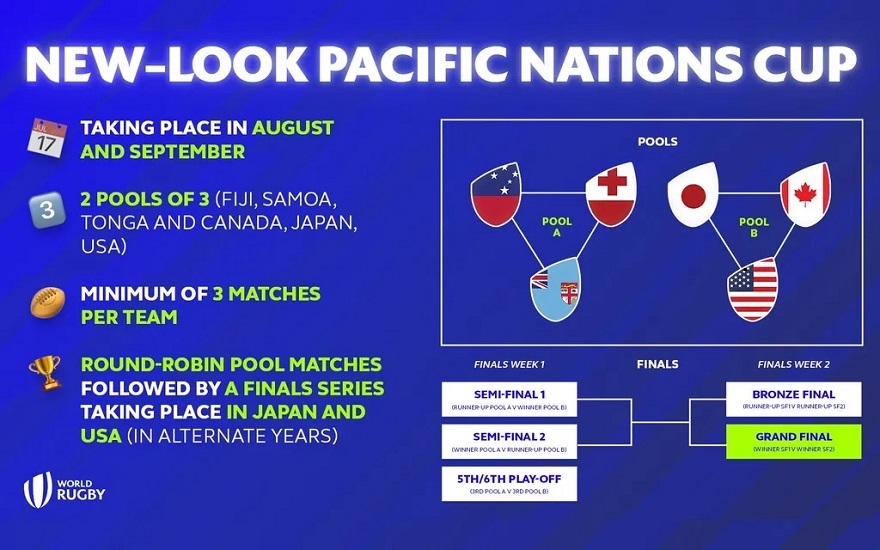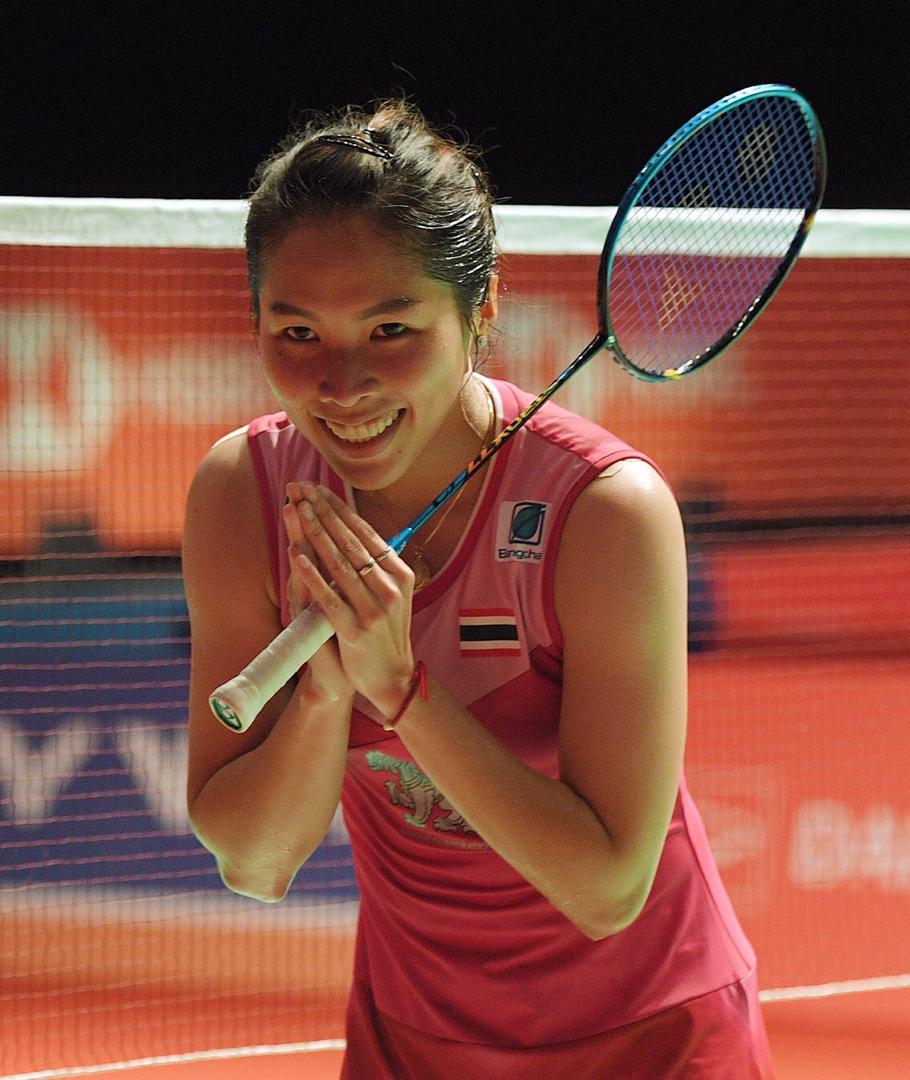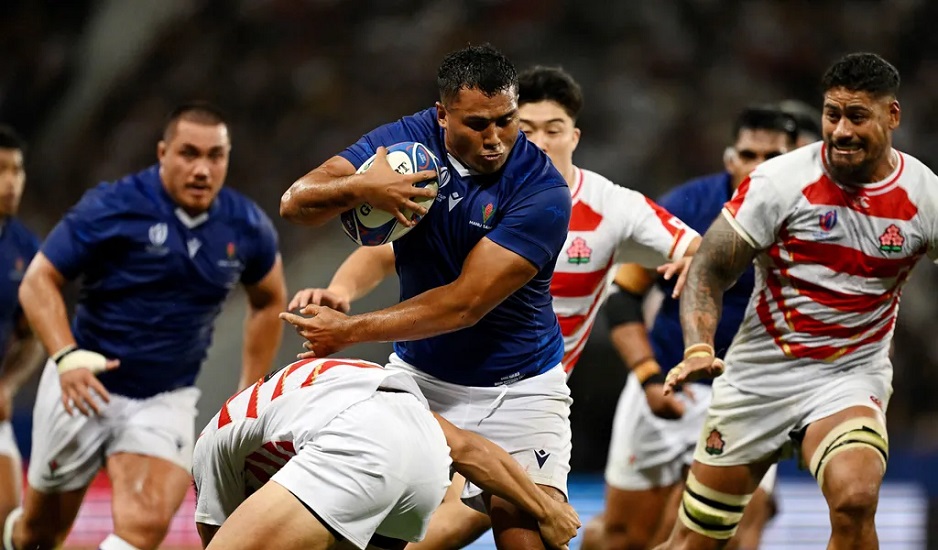 A new annual men’s 15s competition involving Canada, Fiji, Japan, Samoa, Tonga and USA will launch in 2024, reaffirming World Rugby’s commitment to increasing global competitiveness on the road to Rugby World Cups in Australia (2027) and USA (2031).
A new annual men’s 15s competition involving Canada, Fiji, Japan, Samoa, Tonga and USA will launch in 2024, reaffirming World Rugby’s commitment to increasing global competitiveness on the road to Rugby World Cups in Australia (2027) and USA (2031).- orld Rugby committed to increasing competitiveness, value and reach of the game
- Pacific Nations Cup to provide long-term certainty and opportunity from 2024
- New competition a key building block in providing increased number of annual test matches
A new annual men’s 15s competition involving Canada, Fiji, Japan, Samoa, Tonga and USA will launch in 2024, reaffirming World Rugby’s commitment to increasing global competitiveness on the road to Rugby World Cups in Australia (2027) and USA (2031).
Approved by the international federation’s Council, the rebranded Pacific Nations Cup, which will be played in the southern hemisphere release window of August and September, will feature two pools of three teams – a North America/Japan pool and a Pacific Islands pool with each union hosting matches.
A finals series involving all teams will take place each year, where the annual champions will be confirmed. Japan and USA will host the finals series in alternate years, starting with Japan in 2024.





























